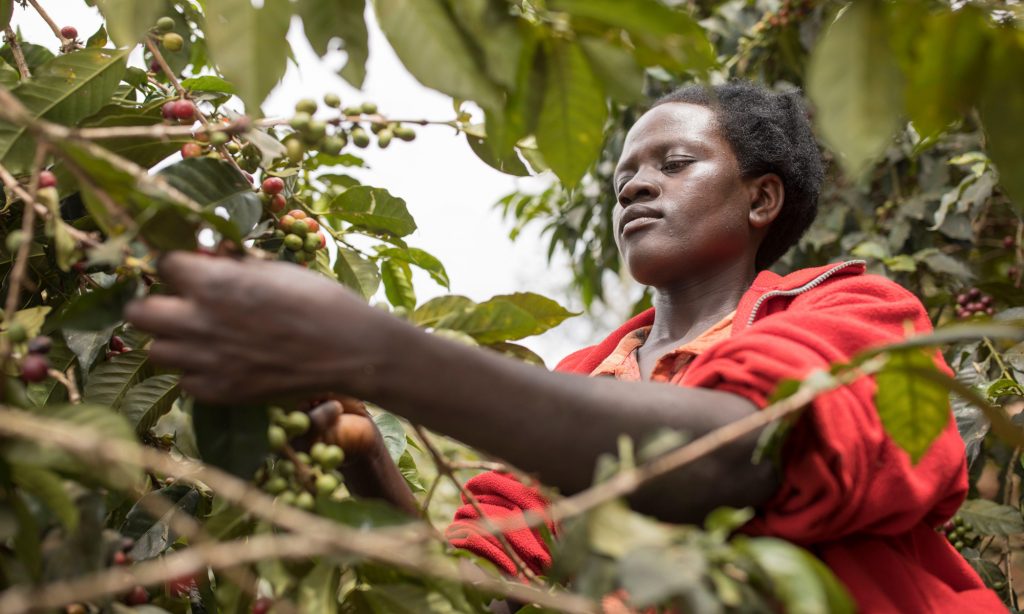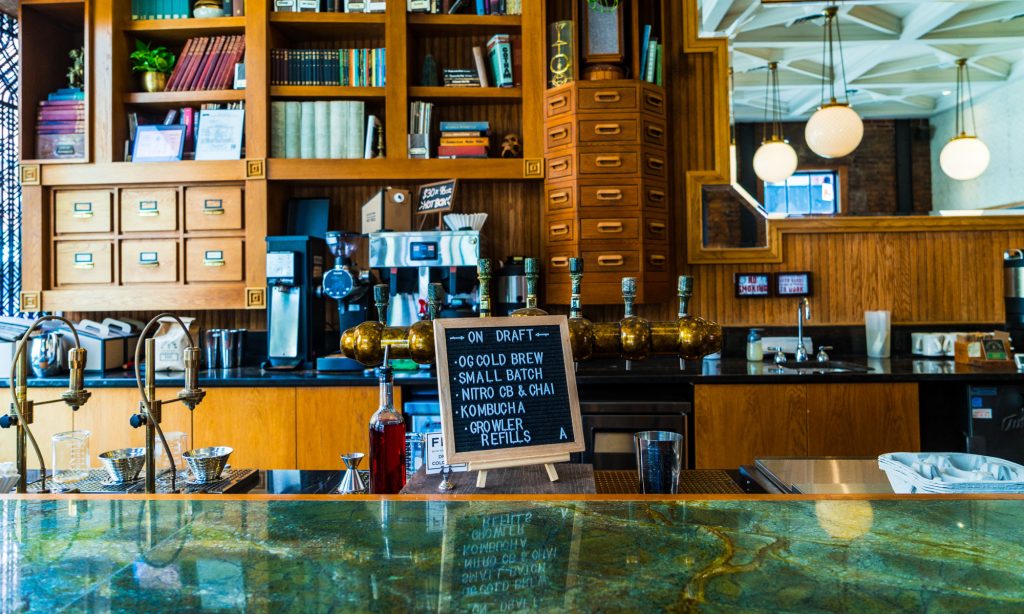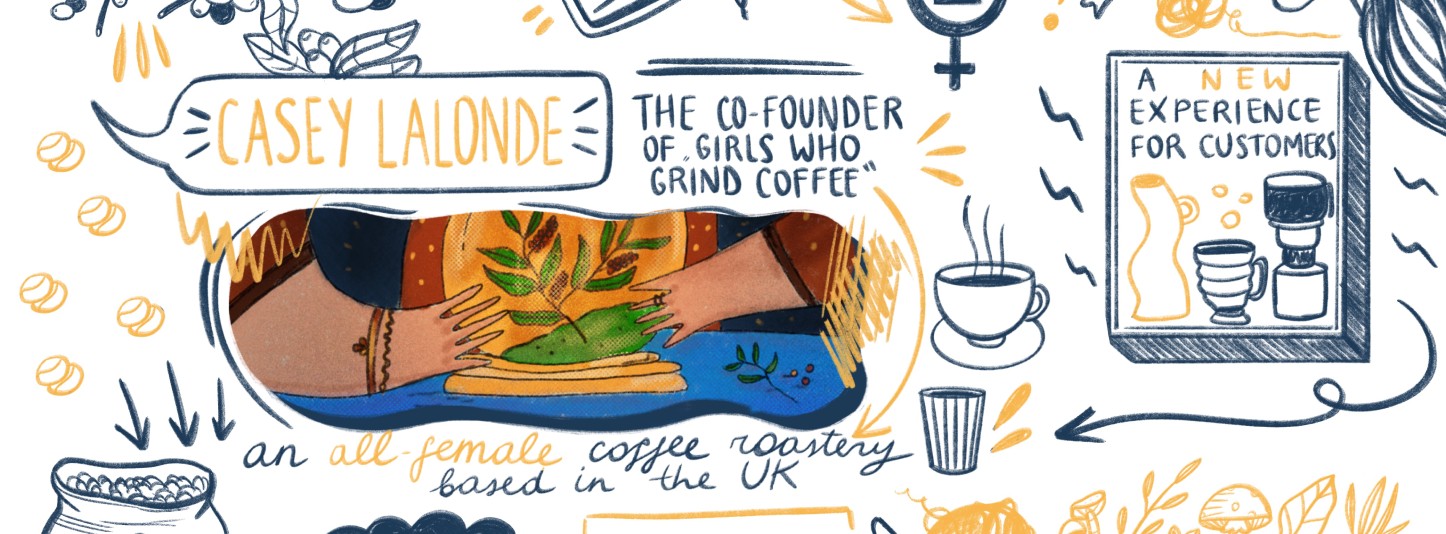We’re about to see a wave of change in the coffee industry – I’m all for it
Casey Lalonde, the co-founder of Girls Who Grind Coffee, a women-owned coffee roastery based in the UK, unveils why 2023 will mark several turning points for the coffee industry.
It’s easy to feel daunted by the challenges our industry faces this year. But I’m hopeful 2023 will bring positive changes throughout the supply chain that will lead us toward a more sustainable and prosperous future.
How will we tackle critical sustainability issues, and respond to inflation, while drawing in new customers? Here is what I think we can expect from the year ahead.
Innovations at a farm level
Producers already face a number of challenges to maintain profitability. They are now dealing with a rising production costs, which includes the price of fertiliser doubling.
These challenges have forced farmers to find ways to supplement their incomes and prepare themselves for a sustainable future.
One of the innovations I’m most excited about is a project from Mió, a farm in Monte Santo de Minas, Brazil.
They are trialling a method developed by the Instituto Federal do Espírito Santo and Dr Lucas Louzada, which involves unripe cherries undergoing a microbial fermentation to strip the beans of the astringency found in underdeveloped beans.
It has been shown to increase cup scores – from 75 to 85 points in some cases – and can create a complex, sweet, and floral cup profile.
As unripe cherries are normally sold cheap, this transformation could be hugely beneficial for the long-term sustainability of farms. I can’t wait to see this being sold in cafés this year.

Greater female representation
Coffee grown by women is no longer reserved for International Women’s Day.
As the world begins to acknowledge the fact that gender equality is crucial to all sustainable development goals, it is becoming a core value for a lot of coffee businesses.
As a result, this year will bring ever more female representation in the industry – from more coffee offerings grown by women producers to more women-owned coffee businesses throughout the supply chain.
More importers will develop women producer programs and add a greater number of female producers to their menus. I often get asked by other roasters where they can find women-produced coffees, and it’s becoming easier and easier to point them in the right direction.
At a recent coffee trade show, I noticed that a large number of roasters were brewing up women-produced coffees. As the demand for products that work toward gender equity grows, more companies will have them as permanent fixtures in their offerings.
I’m seeing more women-owned coffee businesses and those with a focus on gender equality than ever before. I say it’s about damn time.
The rise of responsible purchasing
Most specialty coffee customers are willing to fork out their hard-earned cash for quality coffee. How quality is defined, however, is changing – and for the better.
When I started working in specialty coffee in 2006, “quality” was almost entirely focused on cup attributes – and it was unusual for a café to display the name of a producer.
Things have changed and customers are now more discerning than ever. In addition to cup quality, they expect their coffee to have an ethical and mission-driven directive, and for it to involve truly sustainable and equitable practices.
This year will see businesses throughout the industry rethinking their social and environmental standards, and relaying them to customers. These messages will be conveyed to customers through carbon footprint calculations and transparency reports.
It’s important to understand, however, that simply making a sustainable or ethical claim won’t be enough. With limited marketing standards in the UK, there is little or no official accountability of our assertions. But expect customers to start asking a lot more questions, particularly now they need to pay more for their coffee.
It will be the customers that increasingly hold us accountable, requesting more details of our supply chain and, honestly, I think this can’t come soon enough.
The vast majority of us who work in specialty coffee make one or more ethical claims on our packaging or in our stores. And some even go as far as to state they’re the “most” ethical brand. It’s about time that we are all held to account.
A new experience for customers
Not only will customers want more from their coffee, but they’ll also want more in the way of an experience when they drink it. This will give cafés exciting opportunities to stand out and not only make it through the year but prosper into the future.
Cafés will start to think more about how their coffee is served. Our surroundings can influence the way we perceive flavour – and customers who have a positive multisensory experience will be more likely to return.
I anticipate more establishments exploring this area, perhaps by serving coffee in vessels designed to complement tasting notes. For example, a chocolatey, smooth coffee served in a smooth round mug; or a fruity, acidic coffee presented in cups with more texture and shape.
Other businesses will create completely unique experiences, such as Intelligentsia’s Illumination Bar in Los Angeles – an instant-only specialty coffee bar. This is taking the customer experience to a whole new level, while giving customers a unique talking point and a reason to return.
Whether it’s an experience for the senses or an entirely new concept, it will be crucial for businesses to think outside the box this year, not only to retain current customers but to entice new ones.

Accessible coffees
For far too long specialty coffee has been known for its elitism and snobbery. Luckily, many of us have acknowledged this and are working hard to break down barriers and make specialty coffee more accessible to all.
For all of us in the industry, attracting more customers is imperative for our business. In 2023, I expect to see increasing numbers offering both dark roasts and instant coffees. Recently I’ve seen many specialty roasters, including my own, launch their first dark roast, and I think this will continue to grow in popularity during the course of the year.
While visiting my hometown in New York last year, I took my dad to a local café-roastery. On the menu was a coffee flight showcasing a light, medium, and dark roast of a single origin.
My dad, who generally drinks Folgers instant with lots of cream and sugar, enjoyed picking out flavours in the different roasts – a brand-new experience for him. I was so impressed by our visit and the way it fostered a conversation about the different roast styles without any pretension or intimidation.
Instant coffee is about as accessible as you can get, and there has been a rise in specialty instant coffee along with drip coffee bags. I’ve tasted some really nice specialty instants that are sweet, fruity, and so much better than the alternative offerings you might find in a standard hotel room.
We should listen to and embrace our customers’ wishes and, through expanding our offerings, provide entries to the market for more people in an open and approachable way.
Functional and healthy coffee
Customers are not only focused on ethics this year – they are focused on their health and well-being.
The final prediction I’m making for this year is a rise in the popularity of “functional” coffees.
These are coffees with added ingredients, such as adaptogens, to promote mental and physical well-being as part of a healthy lifestyle.
Adaptogens are active ingredients found in plants and mushrooms that can help your body deal with stress and anxiety, and contribute to overall well-being.
In 2023, they are big business, being added to food and nonalcoholic beverages, as well as to coffees. These claim to enhance the benefits we receive from coffee, such as focus, while eliminating some of the negatives, such as the jitters.
I think we’ll see more functional coffees entering the market. And while this trend might seem strange to some of us in the industry, it is something our health-conscious customers are craving – so let’s keep an open mind about this one.
I, for one, am ready to drink unripe coffee, see more coffees from female producers, experience the changing landscape of cafés, welcome more customers to specialty, and maybe even add a mushroom coffee to my day.
No matter the causes, this year will be full of change and innovation. And, in my opinion, all for the better.







